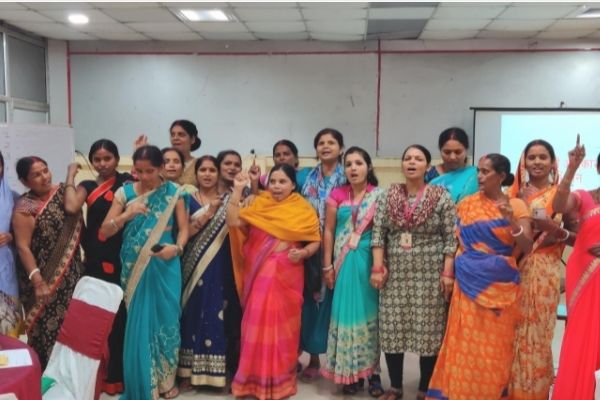
Projections suggest that 60 percent of India’s population will live in cities by 2050. These staggering numbers will generate additional pressure on the woefully inadequate provisions of key basic services such as water, sewerage, waste collection, and toilet facilities in Indian cities. Attributes such as spatial location, and tenure status, affect the availability and quality of basic services. Typically, urban informal settlements (such as slums) inhabited by vulnerable and disempowered residents are the worst affected because planning processes either bypass them completely or give them disproportionately limited access to trunk infrastructure. In early 2019, SEWA Bharat began supporting communities in Nehru Nagar and Mubarakpur, two informal settlements of Patna. The organization trains women to become community leaders and organizes awareness campaigns on the importance of access to adequate infrastructure services and the basics of urban governance. In light of the COVID 19 pandemic and the annual monsoon rains that devastate the city, this article reflects on the dismal state of infrastructure service delivery in Patna’s informal settlements. Drawing on SEWA’s success in these settlements, it also highlights the efficacy of developing an interface between low-income urban communities and local governments to initiate basic services delivery, particularly one that is led and managed by the local women.
